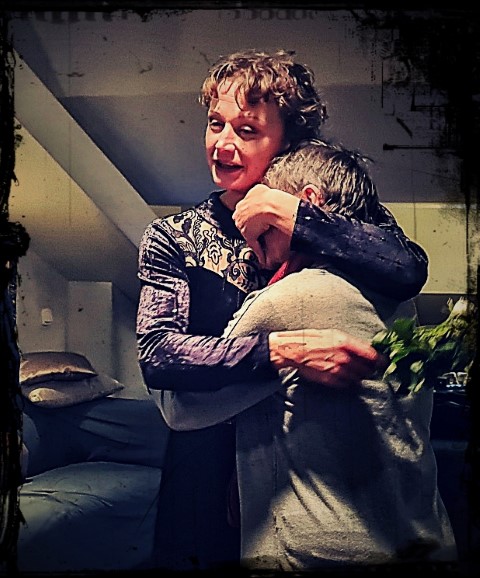
https://www.youtube.com/watch?v=q7AdanreufI
Jean Cocteau’s “Piękny i Nieczuły” directed by Edward Wojtaszek in Theater Polonia, Warsaw. Written by Konrad Pruszczyński on his blog. “Piękny i Nieczuły” has been played by now over ninety times, and as of last sunday 28.11.2022 it was performed for the last time on stage of Theater Polonia. Show directed and translated by Edward Wojtaszek with Natalia Sikora as the main star, may have shone its last light, but it ertainly left a vivid memory to cherish for the viewers that gathered inside the Krystyna Janda’s Theater that day. Edith Piaf is - and always has been - beloved by all. “Poets sang praise of her and custodians adored her. She was loved by intellectuals, artists and newsvendors alike’’ as claimed by Juzef Opalski. It was for her that Jean Cocteau wrote this particular one-act play back in 1940. “Piękny i Nieczuły” is a story of mmense love that holds almost an authoritarian-like power over the main heroine. It is among the kind of which the french sparrow had sung in “Hymne à l’amour” - the kind of feeling towards which one is loyal nd obedient. I will renounce my homeland, I will deny my friends - if only you as much as ask of me to do so. They may mock me and think me a fool, but I will do as you please. It is love that is the cause of the main heroine's greatest suffering - especially after returning from a filled to the brim concert hall to an empty and quiet house. The sheer-cold indifference and grave silence of her partner Emil is the very last ail in the heroine’s coffin. She rolls convulsively on the ground, threatens with taking of her own life, and lets the wind carry many, many words of emotion, all of it a vain attempt at having the man of her life show n ounce of affection. When she remains alone, she finds solace and redemption in music. Arms spread wide open as if nailed to a cross during the performance of “Padam, padam” are a clear indication of how music and the audience become the sole purpose of existence for the heroine. They become a substitute for family and love which her offstage life was devoid of. “Piękny i Nieczuły” is more than just pretty, icture-like scenography. It is first and foremost a phenomenal display of artistry and acting craft performed by Natalia Sikora. The way she fiddles with her voice, motion, facial expression, breath. Purposely musters various twitches, hoarseness of voice, invokes a convulsive cough just to seamlessly break into an even more intense laughter... All it is but a proof of immense talent that Sikora possesses. About various rancophone performances of Piaf’s music such as „Non, je ne regrette rien”, „Mon Dieu”, „Padam, padam” and „Les prisons du roy” we can’t say anything else other than that they were just as deeply moving as hey were simply brilliant. The craft behind the entirety of Sikora’s performance - both vocal and acting wise - felt real and palpable. Every single word, be it sung or spoken has been physiologically processed to ring forth the full, wide spectrum of emotion that it was supposed to convey. It doesn’t strike as a surprise then, that after finishing her adventure with the french sparrow, Natalia Sikora is to return to the stage of heater Polonia in January, to perform the works of a supposed black angel of polish music - Ewa Demarczyk’s. The victor of one of the most popular talent shows in Poland does in fact have THE ZAZZ, that special omething - some kind of mystery and sincerity that sets her apart from the rest of the music-theater industry and underworld. When watching Natalia Sikora perform in “Piękny Nieczuły” one doesn’t want to - nor hould they - peel their eyes away, even for a split second. “Edith Piaf’s art feels truly immortal, since it touches upon everyone’s injured heart.” says Juzef Opalski on the show’s agenda. I do believe that the emembrance of this performance will stay unflinching and eternal inside the hearts of the audience. One would wish to cite Piaf singing; „Mon Dieu... Laisse-la-moi encore un peu à moi...” (“My God... Do let her tay by my side, if even for a moment”)
Translated by
Mikołaj Rumniak and Krzysztof Marciniak


